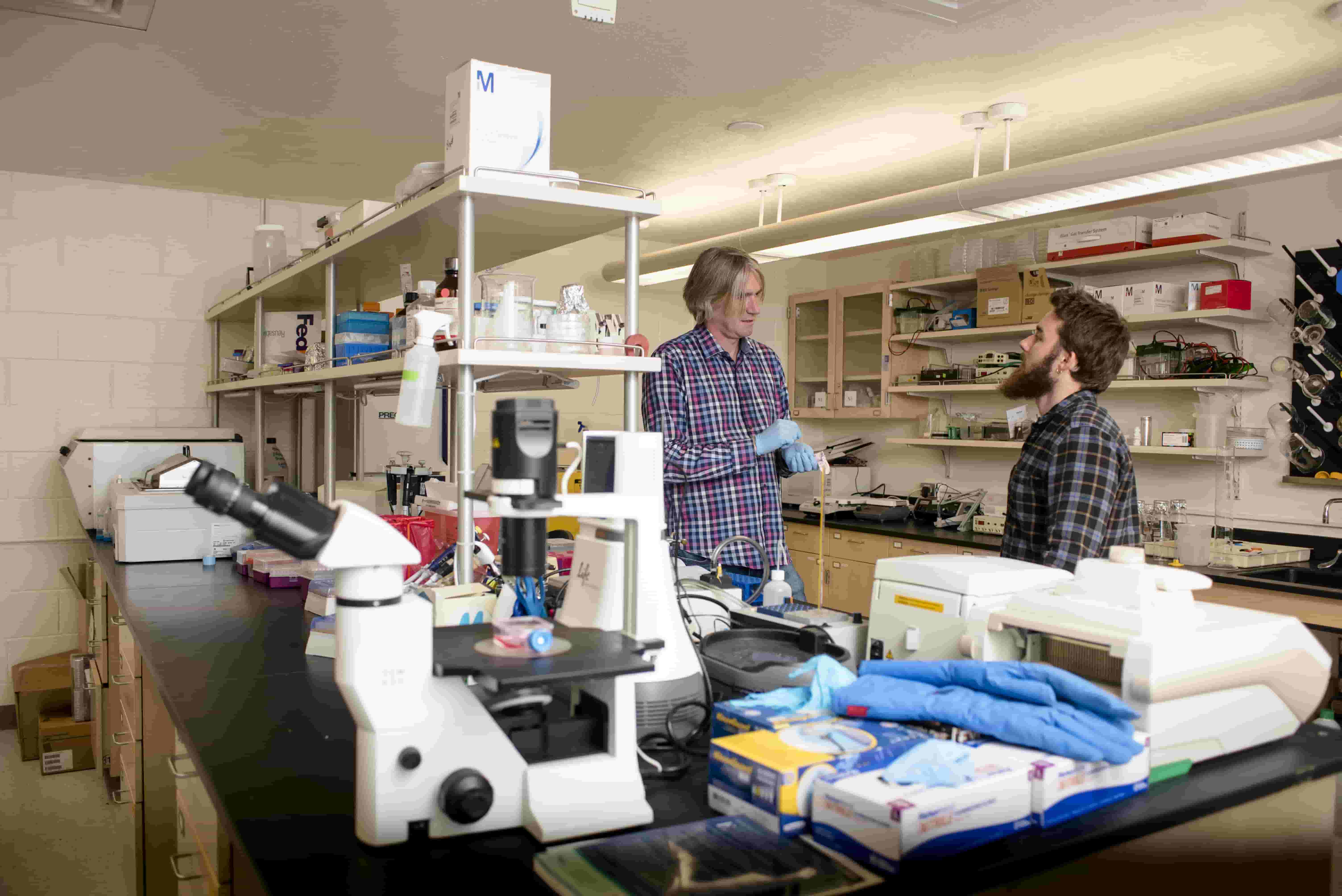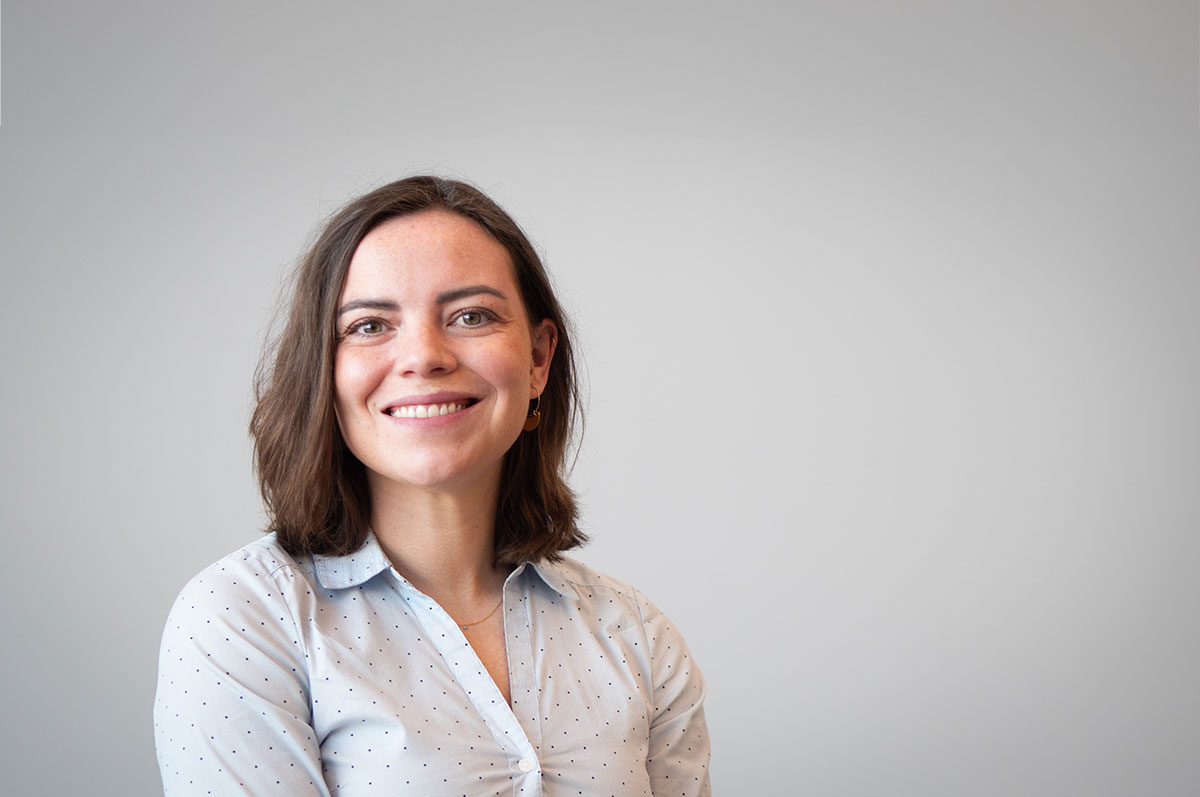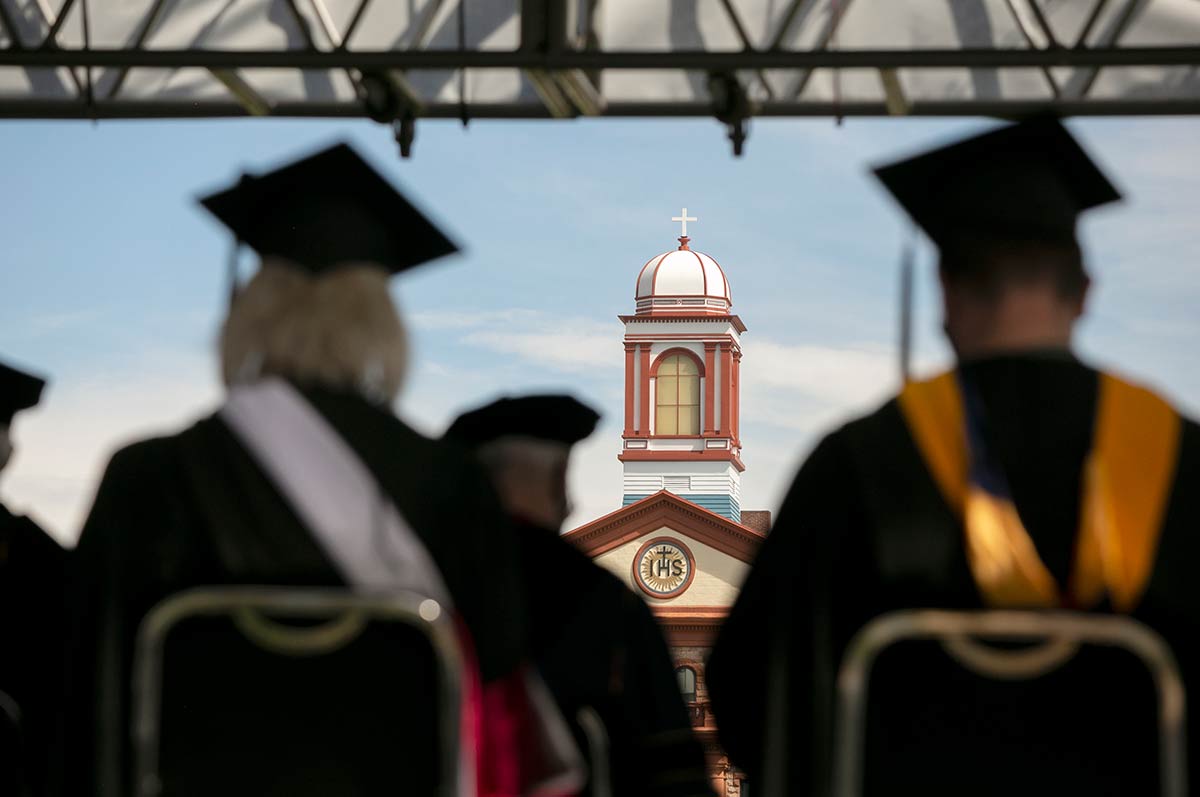Conquering Cancer
Regis researcher unlocks secrets that could stop the tumor-starting process
For decades, researchers across the world have searched for ways to stop or slow the growth of tumors.
But Chris Malarkey, a Regis associate professor of pharmaceutical sciences, may have found a way to stop one type of malignancy — stomach cancer — before it ever starts. And he’s hoping the National Institutes of Health will be sufficiently impressed with his finding to award a coveted grant that would help further his research.
Worldwide, stomach — or gastric — cancer is the fifth most common malignancy and was responsible for an estimated 783,000 deaths across the globe in 2018, according to the Global Cancer Observatory (GLOBOCAN). In the United States alone, 27,000 people will be diagnosed with stomach cancer in 2020, the American Cancer Society predicts.
Studies have shown that smoking, a diet high in smoked and processed meats and a sedentary lifestyle may increase the likelihood of developing stomach cancer. But the strongest known risk factor is infection with the bacteria H. pylori. If untreated, H. pylori sets off a series of interactions that can eventually lead to cancer.
Thanks to previous studies, researchers have an understanding of how that happens. “H. pylori stimulates [the protein] TLR4, and that causes an unwanted immune response, which leads to inflammation,” Malarkey said. TLR4 is part of a family of proteins that, when stimulated, can trigger inflammation. In proper amounts, inflammation is a key part of the body’s immune response. It’s what heals cuts and fights invaders like bacteria that cause infection. But when inflammation gets out of control or continues so long that it becomes chronic, it can do serious damage. Among other things, chronic inflammation may trigger unusual and harmful interactions among proteins in the body. Those interactions can fuel cancer growth.

In a study published last September in “BBA – Biomembranes,” Malarkey and several Regis colleagues focused on the role of molecules called lipopolysaccharides (LPS), which stimulate the immune system. “I looked at LPS molecules and saw a portion that looks like DNA. So, we had the idea that maybe this protein called SOX2, which binds DNA and is turned off in gastric cancer, can bind LPS and potentially prevent stimulation of TLR4,” and therefore halt the cancer-igniting inflammation.
“We were able to show that SOX2 indeed does bind to that LPS molecule,” Malarkey said. “The results of this study have the potential to shed light on a previously unrecognized mechanism for the progression of gastric cancer,” the research team wrote in the study.
Now, they are looking into other proteins that might be induced to performing anti-cancer activities. And that’s where the NIH grant of $367,000 would come in.
Malarkey, who has a Ph.D. in chemistry from another Jesuit institution, Loyola University Chicago, began studying DNA binding proteins during a post-doctoral fellowship at the University of Colorado School of Medicine’s department of pharmacology. “They asked me to teach a class on inflammatory bowel disease. I knew nothing about IBD before teaching that class,” Malarkey said. He learned quickly, and by necessity, that IBD is a chronic inflammatory condition that can lead to gastric cancer.
Malarkey said he expects to hear sometime in June whether the NIH will award him the grant. He knows the odds are against him — only about 10 percent of applicants actually receive the grants — but he’s hopeful. Winning the grant would allow him to delve deeper into the mechanisms of cancer growth and to pay students assisting in his research. Many of those students, like Patrick Hewitt, a chemistry major who graduated in May, are undergraduates whose contributions now and in the future are valuable, he said. Hewitt, for example, recently was accepted into a biochemistry doctoral program in the fall at Boston University.
Regardless of whether NIH awards him a grant, Malarkey said he is prepared to continue his potentially game-changing research and to keep applying for grants if necessary. “Nobody likes being told their baby is ugly, but you just have to keep your head down and keep fishing,” until you catch something.



